King's commissioner
The King’s commissioner (Dutch: Commissaris van de Koning, abbreviated to CvdK) is the head of a province in the Netherlands. The officeholder chairs both the states-provincial (directly elected provincial legislature) and the provincial-executive (executive branch), but has a right to vote only in the latter. When the reigning monarch is a female, the office is Queen's commissioner (Commissaris van de Koningin). As there are twelve provinces in the Netherlands, there are twelve King's Commissioners.
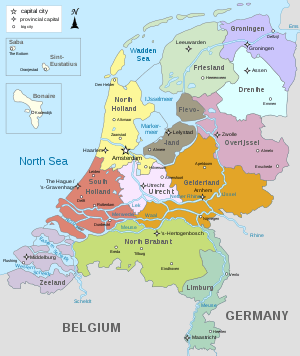
There are two levels of local government in the Netherlands: the provinces and the municipalities. The twelve provinces form the tier of administration between central government and the municipalities. The three tiers are organised in largely the same way, with a directly elected legislature, which in turn chooses the executive branch, headed by an appointed chairman. At the national and municipal levels, these are the King and the Mayor; at the provincial level it is the King's commissioner.
Tasks of the King’s commissioner
The King’s Commissioner is not elected by the residents of the province, but appointed by the Dutch Crown (the ministers, presided over by the monarch), for a term of six years, renewable. The King’s Commissioner can be dismissed only by the Dutch Crown. When a vacancy arises, the provincial council gives the Minister of the Interior a profile of the kind of candidate it would like to see in the job. Although all King’s Commissioners are prominent members of one or another of the major national political parties, they are expected to be politically impartial while they are in office.
The King's Commissioners play a role within the provincial administration and are the official representatives of central government in the provinces. They coordinate disaster management and prevention and pay regular official visits to the municipalities in their region.
The King's Commissioners play an important part in the appointment of municipal mayors. When a vacancy arises, the King's Commissioner first asks the municipal council for its views as to a successor, then writes to the Minister of the Interior, recommending a candidate. Since the King's Commissioners are both the chairs and full members of the provincial executives, they may include some of the executive's tasks in their portfolio. They also oversee the official apparatus and any provincial utilities and represent the province in its dealings with business.
Naming practice in Limburg
In the Dutch province of Limburg, the King’s Commissioner is usually informally called Gouverneur ("governor"), as in Belgium. Similarly, the Provinciehuis ("Province Hall") at Maastricht is called Gouvernement ("Governor’s Residence"). This local custom arose from the particular status of the province in the nineteenth century. The official name of the office is currently the same as in the other provinces.
List of current King's commissioners
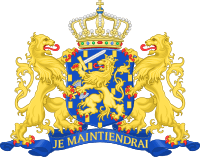 |
|---|
| This article is part of a series on the politics and government of Netherlands |
|
|
Local government
|
|
Related topics |
| Province | King's Commissioner | Party | Serving since | ||
|---|---|---|---|---|---|
 |
.jpg) |
Jetta Klijnsma (born 1957) |
Labour Party | 1 December 2017 (2 years, 206 days) | |
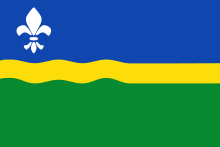 |
.jpg) |
Leen Verbeek (born 1954) |
Labour Party | 1 November 2008 (11 years, 236 days) | |
 |
.jpg) |
Arno Brok (born 1968) |
People's Party for Freedom and Democracy |
1 March 2017 (3 years, 115 days) | |
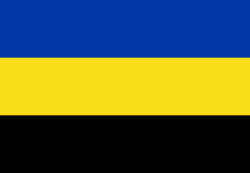 |
 |
John Berends (born 1956) |
Christian Democratic Appeal | 6 February 2019 (1 year, 139 days) | |
 |
.jpg) |
René Paas (born 1966) |
Christian Democratic Appeal | 18 April 2016 (4 years, 67 days) | |
.svg.png) |
.jpg) |
Theo Bovens (born 1959) |
Christian Democratic Appeal | 1 October 2011 (8 years, 267 days) | |
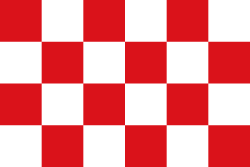 |
.jpg) |
Wim van de Donk (born 1962) |
Christian Democratic Appeal | 1 October 2009 (10 years, 267 days) | |
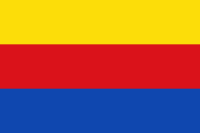 |
Arthur van Dijk (born 1963) |
People's Party for Freedom and Democracy |
1 January 2019 (1 year, 175 days) | ||
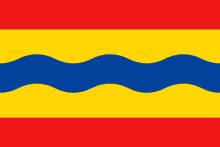 |
 |
Andries Heidema (born 1962) |
Christian Union | 11 July 2018 (1 year, 349 days) | |
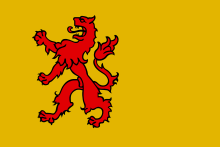 |
.jpg) |
Jaap Smit (born 1957) |
Christian Democratic Appeal | 1 January 2014 (6 years, 175 days) | |
-Flag.svg.png) |
Hans Oosters (born 1962) |
Labour Party | 1 February 2019 (1 year, 144 days) | ||
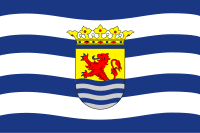 |
_(cropped).jpg) |
Han Polman (born 1963) |
Democrats 66 | 1 March 2013 (7 years, 115 days) | |
See also
- List of King's and Queen's Commissioners of Flevoland
- List of King's and Queen's Commissioners of Limburg
- List of King's and Queen's Commissioners of North Holland
- Lord-lieutenant
